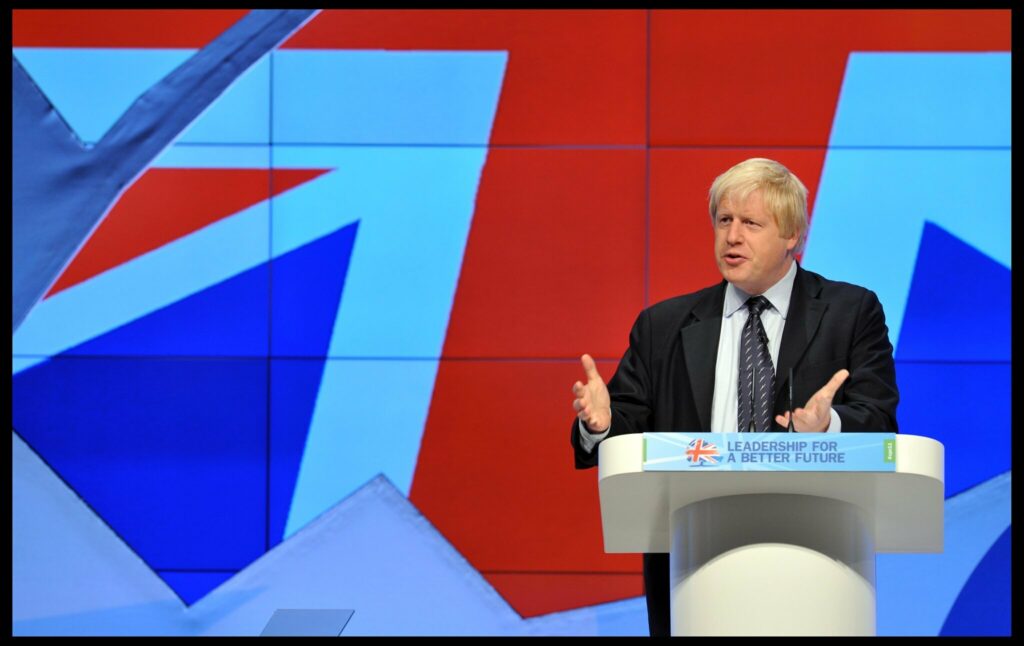Offshore wind, EV charging and domestic energy efficiency have taken central roles in a Conservative manifesto otherwise lacking in clean energy initiatives.
Conservative leader Boris Johnson has however given the first indication that his party would look into bringing forward the phase out of new ICE vehicle sales, having been criticised for its existing 2040 date.
Prime Minister Boris Johnson launched the manifesto at an event in Telford, Shropshire, on Sunday 24 November, setting out his party’s pledges ahead of the 12 December election.
Unlike that of the Labour Party and the Green Party, the Conservative manifesto focuses heavily on Brexit with much less of a focus on environmental issues, including the energy sector.
The Conservative Party said that its first budget, delayed because of the forthcoming election, would be focused on the environment though.
“Our first Budget will prioritise the environment: investing in R&D; decarbonisation schemes; new flood defences, which will receive £4 billion in new funding over the coming years; electric vehicle infrastructure including a national plug-in network and gigafactory; and clean energy.”
40GW of offshore wind by 2030
The main energy pledge within the manifesto was a reconfirmation of the party’s commitment to offshore wind. It again promised that the UK will reach 40GW of offshore wind capacity by 2030, including support for new floating wind farms.
RenewableUK’s director of strategic communications Luke Clark welcomed this, but said the country would need a “range of renewables to modernise our energy system.”
“Offshore wind is a vital technology for tackling the climate emergency, and increasing our ambition will help to create tens of thousands of new jobs, especially in coastal communities, and attract billions in investment in much-needed clean energy infrastructure.”
Beyond offshore wind the commitment to energy generation is less clear, with the party pledging that it will: “support gas for hydrogen production and nuclear energy, including fusion, as important parts of the energy system, alongside increasing our commitment to renewables.”
There was a conspicuous lack of detail on other technologies, with solar power not even mentioned in the manifesto. Similarly, energy storage and the electricity grids were not included.
Fracking, CCS and energy efficiency
The party’s recent ban on fracking was reiterated, although with the added caveat that it “will not support fracking unless the science shows categorically that it can be done safely.” It also doubled down on its commitment to the oil and gas industry, arguing it to be critical towards establishing a net zero economy.
The party will further support carbon capture and storage, saying it will invest £800 million in the first cluster by the mid-2020s. It will also invest £500 million to help energy-intensive industries decarbonise.
Further investment was promised energy efficiency measures for homes, schools and hospitals. It will invest £9.2 billion in these measures to help lower energy bills and decarbonise.
Clean energy will also be supported in foreign aid through the Ayrton Fund. This was first announced in September and provides £1 billion “to develop affordable and accessible clean energy that will improve lives and help us to lead the world in tackling climate change.”
Fast-charging within 30 miles
One of the most detailed pledges was the expansion of the EV infrastructure in the UK. This builds on Johnson’s inaugural campaign speech, given at London Electric Vehicle Company’s manufacturing facility in the West Midlands last Wednesday.
“We will invest £1 billion in completing a fast-charging network to ensure that everyone is within 30 miles of a rapid electric vehicle charging station,” states the manifesto. “We will consult on the earliest date we can phase out the sale of new conventional petrol and diesel cars, while minimising the impact on drivers and businesses.”
The party will also invest in electric buses, with a commitment to developing the UK’s “first all electric-bus town.”
The Conservative government earlier this year committed to the UK becoming carbon neutral by 2050, in its much-lauded net zero promise. But the manifesto provides little detail about this transition, in particular the role that energy, and renewables in particular, are likely to play.
In its manifesto, the Labour Party committed to a “green transformation” that would see the UK get 90% of its electricity from renewables by 2030. The Liberal Democrats promised an investment of £12 billion in renewables if elected, while the Green Party pledged to make the UK carbon neutral by 2030 and invest £100 billion a year for the next decade in climate action.





